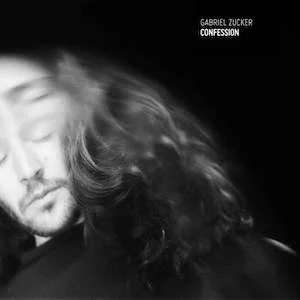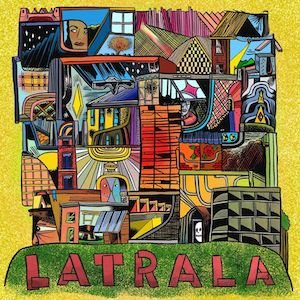Label: Adhyâropa Records, 2026
Personnel - Meg Okura: violin, erhu, vocals; Anne Drummond: flute; Sam Sadigursky: bass clarinet, clarinet; David Smith: trumpet; Rebecca Patterson: trombone; Riza Printup: harp; John Lee: guitar; Brian Marsella: piano; Evan Gregor: bass; Peter Kronreif: drums + Guests - Sam Newsome: soprano saxophone (#5,6,7,8); Randy Brecker: trumpet (#5,6,7,8); Remy Le Boeuf: alto saxophone (#3,9); Rogério Boccato (#6,8): percussion; Yotam Ishay: organ (#6,7); Naomi Newsome: vocals (#2).
With her latest album, Isaiah, the expansively creative Japanese violinist and composer Meg Okura proves once again that she stands among today’s most distinctive musical visionaries. Rhythmically fluid and stylistically adventurous, the record represents contemporary world fusion at its most refined. A testament to her eclecticism and athletic command, the album showcases her acclaimed Pan Asian Chamber Jazz Ensemble in celebration of its 20th anniversary. The tentet’s unfettered explorations are amplified by a roster of distinguished guests who elevate the ensemble’s dynamics, arrangements, and interplay to a higher plane.
The exuberant fusion of “Sushi Gadol”, a tribute to Okura’s brother—who transitioned from heavy metal drummer to Protestant pastor—opens with prog-rock stamina embedded in its intricate theme before drifting into breezy chamber textures and eventually settling into a Brazilian-tinged groove. Flutist Anne Drummond engages in spirited exchanges with Okura, leading to a final thematic statement enriched by trumpet, bass clarinet, and guitar accents. “Blessing”, inspired by the Pre-Haftarah Blessing Okura and her daughter received, unfolds as a luminous waltz, featuring David Smith’s radiant trumpet lines, Sam Sadigursky’s subtle yet pertinent bass clarinet commentary, and Naomi Newsome’s ethereal vocalizations that shape a soulful atmosphere.
The infectious title track, “Isaiah”, thrives on funk, Japanese music, and African folk influences. Passages in seven later shift tempo, and there’s astute chromatic movements, pedal points, chamber episodes, and rampant swing thrusts supporting Remy Le Boeuf’s agile saxophone runs. “Rice Country” blends Japanese pop and folk with the American idioms of Aaron Copland, resulting in a kind of Benny Goodman-styled swing where the instruments converse with one another. The gracious “Sunset Bells” features guitar and trumpet solos over taut rhythms, finishing in an excellent chamber mode.
The influence of Michael Brecker is noticeable on “African Skies”, a piece drawn from his 1996 Impulse! album Tales from the Hudson, though Okura adapts it to her own style. Packed with detail, nuance, and deft rhythmic variation, the piece features Michael’s brother Randy Brecker on trumpet, as well as a delightfully outgoing piano solo by Brian Marsella. A different groove underpins the assertive discourses of violin and flute. “Jubberish” is a grooving, well-oiled 7/4 blues that lands on a solo violin passage, maintaining the septuple meter while exploring Arabian dance inflections that reward with inventiveness and rhythmic fire.
Okura’s meticulously assembled sonic layers are remarkable, and Isaiah is a multidimensional crossover journey that packs a punch, the product of the complex mind of a mature, original composer of enormous talent.
Favorite Tracks:
02 - Blessing ► 04 - Rice Country ► 06 - African Skies ► 07 - Jubberish








































